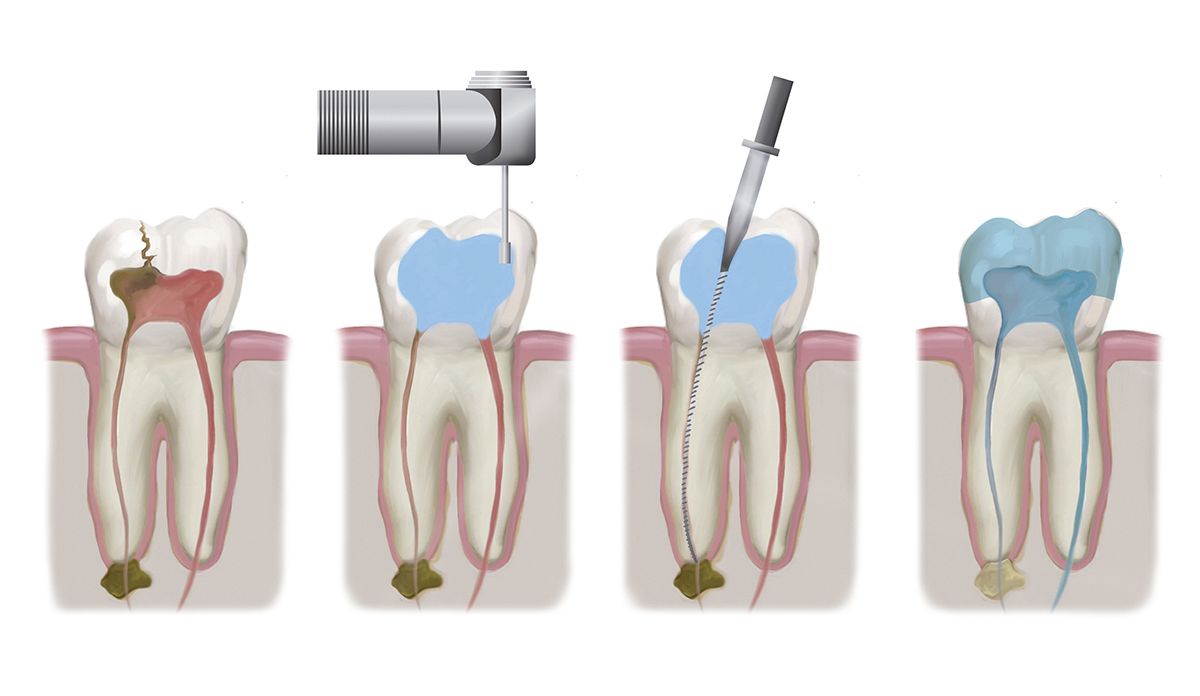Root Canal Therapy Eliminates
Pain and the Need for Tooth Extraction
Root canal therapy, available at our Valdosta, GA, office, saves teeth that have become severely decayed. During a root canal procedure, infected inner pulp is removed from the tooth to preserve healthy outer tissue. Next, the tooth is sterilized and filled with rubber-like, biocompatible material. Finally, your dentist places a dental crown or other restoration to support your reconstructed tooth. Without root canal therapy, surrounding tissue can become further infected, leading to the formation of abscesses and tooth loss. Our doctors have decades of combined experience and can minimize discomfort during root canal therapy, while helping you to save your tooth from extraction. If you are experiencing a toothache or other symptoms of an infected tooth, contact our office today.
Our doctors have decades of combined experience and can minimize discomfort during root canal therapy.
There are a variety of causes of tooth or gum pain, and you should never ignore oral discomfort or swelling of the gums. You may need root canal therapy if you are experiencing:
- Tooth or gum pain, or swelling of the gums
- An abscess (a swollen lesion on the gums)
- Painful or swollen lymph nodes in your neck
- Toothaches when chewing or applying pressure
- Prolonged sensitivity to heat and cold
- Discoloration of a tooth
Step-by-step Procedure
A root canal procedure is fairly straightforward and simple, and we can complete it in one or two visits.

First, we will take a digital x-ray of the affected tooth and surrounding tissue. Your dentist will review your x-ray with you and then thoroughly examine the tooth and surrounding gums and bone structure to determine if root canal therapy is necessary. If your doctor recommends a root canal:
- A local anesthetic is applied to the affected tooth and surrounding area (sedation is also available if you feel anxious or have difficulty sitting comfortably in the dentist's chair).
- A small protective sheet called a "dental dam" is placed around the tooth to isolate it and keep it clean during treatment.
- Your dentist will make an opening on top of the tooth and remove the pulp (nerve tissue, blood vessels, and connective tissue).
- The root canals (the centers of the tooth roots) are cleaned and then filled with a biocompatible material called gutta percha.
- A permanent restoration - in most cases, a dental crown - will be placed on the treated tooth to provide lasting support.
Following root canal therapy, the tooth may feel sensitive due to natural tissue inflammation. You can treat any discomfort with over-the-counter, anti-inflammatory medications. Patients can generally resume normal daily routines immediately after treatment if they receive only local anesthesia. If you undergo sedation as part of your treatment, you may need a friend or loved one to drive you home, and you should plan to rest for several hours following the procedure.
Contact Us
Our goal is to provide you with a healthier smile through comfortable, expert care. If you are experiencing tooth or gum pain, or if you have suffered dental trauma, a root canal can restore the health, comfort, and function of your smile. Contact us today to set up an appointment.


